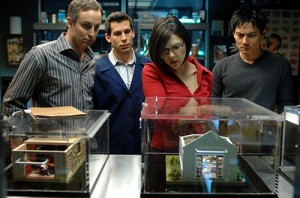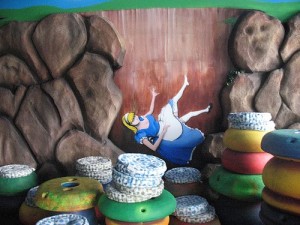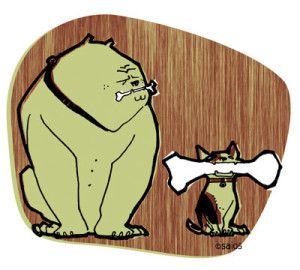John Ramsey Miller
Last week I finished my work with the census and I gathered a lot of material along with a modest paycheck from the Federal Government. Over the past few weeks I traveled a few thousand miles in my Highlander, and spoke to hundreds of people, a few that were glad to see me. So now I am going to get back to writing. Then, due to some family turmoil, I found myself with my three year old grandson for a few days. My grandson lives in town 17 miles from me and he loves spending time with his Dotz, which is what my grandchildren all call me. In my last book, yet unpublished, a man inherits a grandchild, and the appearance of this new addition puts a cramp on his lifestyle and he has to go back into his violent past to save her from bad people with an agenda. For some reason I keep returning to that sort of situation–man with kids to protect. Maybe because I get what it feels like to have a child suddenly changing life as someone knows it.
Yesterday I watched Kung Fu Panda twice, made Duplo Chinook helicopters and “buildings Ha-Ha” all day. Build …demolish… build… demolish… I have no idea what a “ha-ha” is and he just looked at me like I was crazy when I asked what that was we were building and destroying. And he built several things he called “Trapolaters.” We gathered eggs and actually made it back with almost half of the eggs in a state of unbrokness. He followed me through my daily chores and we ended with him swimming in the baby pool we keep on the rear deck. I am out of practice dealing with children, but I must say I’m enjoying his company. In fact his parents told me I could bring him back today, but I don’t think I’ll get around to that today.
It’s storming today, and Rushie and I are probably going to watch Kung Fu Panda a few more times and break a few eggs.
“Every time I leave, they pull me back in.” After writing the first part of this missive I got a call from the LCO asking me to come back to work for Census special ops for three days to clean up some questionable work left by others, and so I dropped Rushie at my youngest son’s gallery while I dashed about between counties.
I had been wrestling with my killer and the kid and spending time with Rushie is helping me get into how a man, who is not a warm and fuzzy type, deals with the contradicting sides of himself. I’ve always been an observer more than a participant in life, and everyone in my family gets that. Most authors I know are outsiders more or less, and the best books are about fish out of water. The past few weeks have demanded that I actively participate in life and it’s not been easy for me, but good for me.
My youngest son is talking about getting married in June, and with that all of my sons will be family men. Life is good and life is bad, but I’m trying to make life as good as possible. So I am going to climb back into my book, and try to write the best book I’ve ever written. I just might do it this time, at least I hope so.
At sixty I’m just starting to learn about life. And maybe one of these days I may even find out what a “Building Ha-Ha” and a “Trapolator” is.






![[image4.png]](https://killzoneblog.com/wp-content/uploads/2010/07/image4.png) It’s time for another Open Tuesday while our blogmate, Kathryn Lilley, is on medical hiatus. Bring us your questions, comments and discussions. If you have a question about writing, publishing or any other related topic, ask away in our comments section. We’ll do our best to get you an answer.
It’s time for another Open Tuesday while our blogmate, Kathryn Lilley, is on medical hiatus. Bring us your questions, comments and discussions. If you have a question about writing, publishing or any other related topic, ask away in our comments section. We’ll do our best to get you an answer.